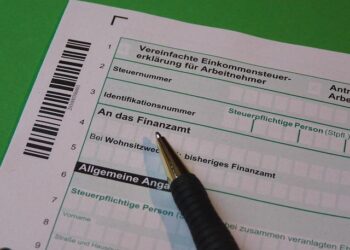Debate Over romania’s Far-right Leader and Allegations of US Lobbying Efforts
A troubling narrative is emerging that highlights concerns about foreign influence and the integrity of political systems in Romania. George Simion,the leader of the far-right Alliance for the union of Romanians (AUR),is facing serious allegations regarding his attempts to secure lobbying services in the United States.Reports from Romania Insider suggest that Simion may have sought to enhance his party’s international visibility through financial channels, indicating a growing intersection between domestic politics and foreign lobbying initiatives. As Romania grapples with its complex political environment, characterized by rising extremist elements, this situation could further destabilize an already precarious landscape ahead of crucial elections.
George Simion: Facing Allegations of US lobbying Activities
The controversial leader of AUR has found himself at the center of a notable scandal following accusations that he engaged in lobbying efforts within the United States. Reports indicate that Simion may have attempted to influence US policy concerning Romania and Eastern Europe through paid lobbyists, raising alarms about potential foreign interference in regional governance. Critics argue that such actions pose a threat to national sovereignty and could undermine democratic values.
This controversy has sparked widespread backlash from various political factions and civil society groups throughout Romania, many calling for greater transparency regarding funding sources linked to lobbyists associated with extremist parties. Key concerns include:
- Conflicts of Interest: The ties between foreign lobbyists and local politicians can obscure decision-making processes.
- Impact on International Relations: Such activities might jeopardize Romania’s relationships with allies and complicate bilateral negotiations.
- Demand for Accountability: There are increasing calls for clearer regulations governing lobbying practices to ensure accountability within political frameworks.
The Impact of Foreign Lobbying on Romanian Democracy
The allegations against George Simion have shed light on how external lobbying influences Romanian politics. The claim regarding purchasing lobbying services raises essential questions about transparency and integrity within governmental operations in Romania. Detractors contend these actions could compromise national interests by allowing outside entities to interfere in domestic matters for their own agendas. Potential repercussions include:
- Erosion of Democratic Accountability: As external interests gain traction, local leaders may prioritize these affiliations over their constituents’ needs, undermining elected officials’ responsibility.
- Polarization of Political Discourse: The introduction of foreign lobbying might exacerbate existing societal divisions as issues are framed through an international perspective rather than fostering national cohesion.
- Sovereignty Concerns: Increased dependence on foreign lobbyists could hinder Romania’s ability to maintain independent policies both domestically and internationally.
A broader analysis reveals ancient trends surrounding lobbying practices within romanian politics. Unlike many Western democracies where such activities are more obvious and regulated,oversight mechanisms in Romania have often been inadequate‚ÄĒcreating opportunities for misuse which can lead to significant challenges such as:
| Main Issues | Plausible outcomes |
|---|---|
| Lack of Regulation | An increase in corruption alongside misappropriation of public resources. |
Expert Recommendations for Enhancing Political funding Transparency
The recent allegations involving George Simion underscore an urgent need for reforms aimed at improving transparency around political funding sources. Experts recommend implementing clear regulations designed to prevent illicit activities while ensuring accountable interactions among politicians.Recommended measures include:
- Mandatory Disclosure: Enforce requirements mandating politicians disclose all funding sources including any contributions from abroad or related expenses incurred during lobbying efforts.< / li >
- Real-Time Reporting: Establish systems enabling real-time tracking donations received along with associated costs , thereby improving public access information .
- Independent Oversight Body: Create autonomous entities tasked monitoring compliance regulations ensuring adherence while holding violators accountable .
- Public Awareness Initiatives : Launch campaigns educating citizens about implications surrounding financial backing influencing decisions empowering them make informed choices .
Additonally , it is crucial address transparency issues related specifically towards lobbyist activity itself ; experts propose adopting thorough registries similar those utilized elsewhere globally encompassing elements like :
Registry component Description< / th > < td >< b >Lobbyist registration/ td >< td >> mandate all individuals engaging lobbied register disclosing clients objectives financial expenditures involved.< / td > < td >< b >Client Transparency/ td >< td >> Require detailed reporting clients represented providing insights potential conflicts interest.< / td > < td >< b >Penalties Non-Compliance/ td >< td >> Implement sanctions failure register disclose activities promoting greater accountability.< /td > < / tbody >
A Concluding Perspective
The accusations directed at George Simion raise significant concerns regarding how international influences intersect with domestic politics within contemporary Romania . As investigations into alleged procurement U.S.-based lobby services continue unfolding , lingering questions remain surrounding ramifications this situation holds not only upon him but also broader socio-political context contry itself amidst pressing internal challenges requiring utmost vigilance maintaining ethical standards governance moving forward .
ADVERTISEMENT















